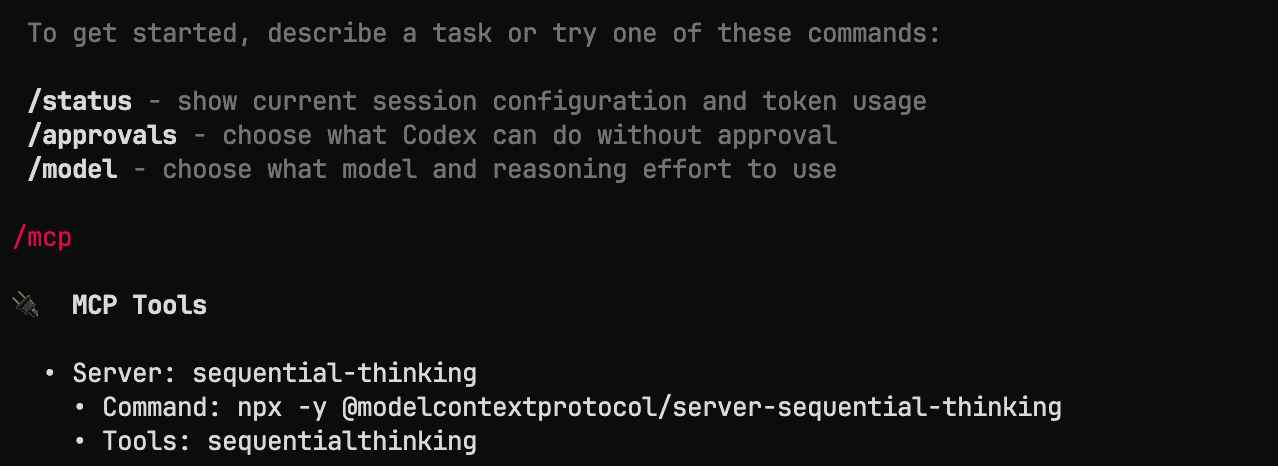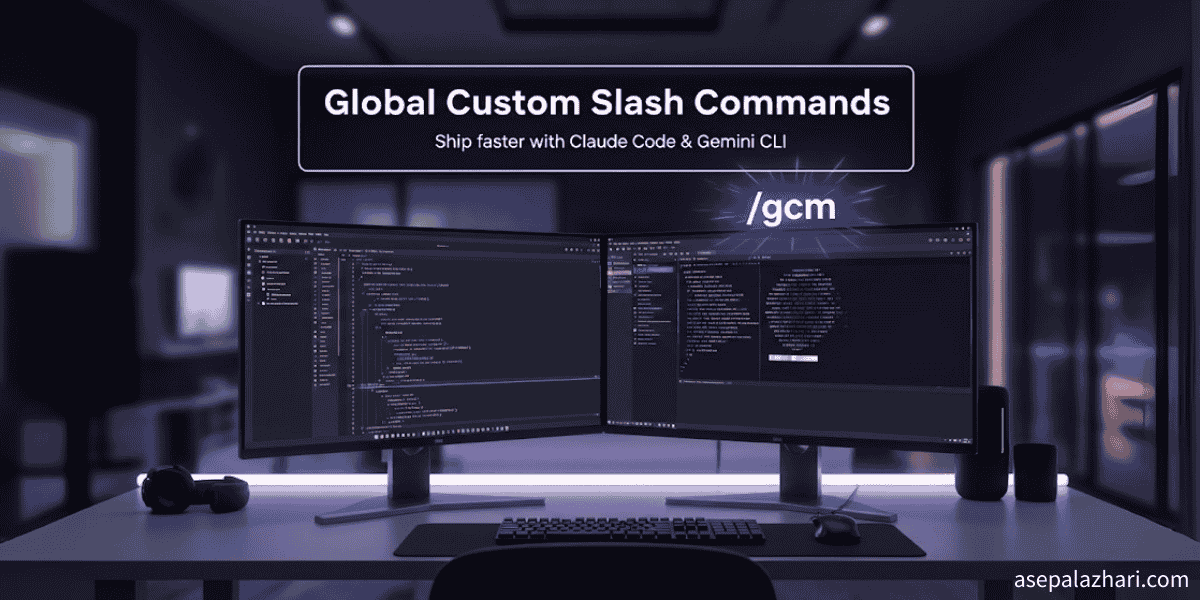Why I Chose Codex CLI as Claude Code Alternative: 2025 Review
Codex CLI vs Claude Code: Compare speed, features, and limits. See why Codex CLI boosts developer productivity as a top AI coding assistant in 2025.

Codex CLI vs Claude Code: From Skeptic to Breakthrough Discovery
Looking for the best terminal AI coding assistant in 2025? I’ve spent months testing both Codex CLI and Claude Code, and the results might surprise you. This comprehensive comparison covers performance benchmarks, feature analysis, and real-world developer productivity impacts.
Picture this: midnight in May 2025, I was debugging a complex React component when Codex CLI first appeared on my radar. As a long-time Claude Code user, I was skeptical about switching terminal AI tools. My initial trial was disappointing – confusing interface, poor responses, and frustrating user experience. “Claude Code remains superior,” I thought, quickly uninstalling Codex CLI.
Fast forward to August 2025. Developer communities exploded with Codex CLI praise, calling it a “Claude Code alternative” with superior performance. Reddit threads compared response speeds, Twitter showcased polished interfaces, and LinkedIn posts discussed productivity gains. Could terminal AI tools have evolved this dramatically in just three months?
The timing was perfect. Claude Code had become noticeably slower – longer startup times, delayed responses, and occasional lag disrupting my development workflow. As someone invested in Claude Pro and ChatGPT Team subscriptions, I needed a terminal-based AI coding assistant that could leverage these existing services while delivering better performance.
Why Choose Terminal AI Coding Assistants Over IDE-Based Tools?
Before diving into this Codex CLI vs Claude Code comparison, let me explain why terminal-based AI development tools outperform IDE alternatives like Cursor or Windsurf for many developers:
First, I don’t subscribe to those tools. With annual subscriptions to Claude Pro and ChatGPT Team already paid for, I want to maximize ROI with tools that can leverage my existing subscriptions.
Second, personal preference. I’m more comfortable with terminal workflows. There’s something satisfying about pure command-line experience that I can’t get from GUI-heavy IDEs. Plus, terminal tools are usually more lightweight and responsive.
Third, flexibility. Terminal tools are usually more modular and can integrate with my existing development stack without forcing me to switch to specific editors or environments.
So when hunting for Claude Code alternatives, my criteria were clear: must be terminal-based, can leverage Claude Pro subscription, and performance must be at least comparable to Claude Code.
Codex CLI 2025 Review: Second Trial Results
With a “give it another chance” mindset, I downloaded the latest Codex CLI and started setup. First impression? Completely different experience from the May trial.
Setup Process: Much smoother. Installation via npm was super easy, configuration was clear, and the onboarding process was user-friendly. Not like before when it was confusing and intimidating.
Interface Breakthrough: This was the most shocking part. Codex CLI’s TUI/UX is now almost as good as Claude Code. Clean, responsive, and most importantly - intuitive. I could navigate immediately without having to refer to documentation repeatedly.
Performance: And here’s what left me speechless - the speed was incredibly fast. The response time I used to expect from Claude Code, I now get from Codex CLI with even better performance. Startup time, processing time, everything just… works.
First Week Experience
During the first week of trial, I deliberately tried various scenarios:
- Complex debugging sessions: Codex CLI handled excellently. AI reasoning was structured and helpful.
- Code refactoring: Suggestions were smart and contextually relevant.
- Architecture discussions: Surprisingly good. Could deep dive into system design with proper analysis.
- Documentation tasks: Clean output, well-formatted, and comprehensive.
Most impressive: consistency. Claude Code sometimes gives brilliant responses, sometimes mediocre. Codex CLI is more consistent in output quality.
 Codex CLI interface displaying smooth MCP server integration with Sequential Thinking. Notice the fast response time and clean output format compared to the first trial experience in May 2025.
Codex CLI interface displaying smooth MCP server integration with Sequential Thinking. Notice the fast response time and clean output format compared to the first trial experience in May 2025.
Head-to-Head Comparison: Codex CLI vs Claude Code
After a week of intensive usage, time to break down an honest comparison between both tools:
Performance & Speed
Winner: Codex CLI
The most obvious difference is speed. Codex CLI is consistently faster in all aspects:
- Startup time: 2-3 seconds vs Claude Code’s 5-7 seconds
- Response processing: Real-time streaming vs Claude Code’s occasional lag
- Context switching: Seamless vs occasional hiccups in Claude Code
UI/UX Experience
Winner: Draw (almost)
This was most surprising to me. Codex CLI has significantly closed the gap:
- Interface clarity: Both excellent now
- Navigation: Codex CLI smooth, Claude Code still slightly more intuitive
- Terminal integration: Both integrate well with existing workflow
- Visual feedback: Claude Code still slightly better in progress indicators
Configuration & Customization
Winner: Claude Code
And here’s Codex CLI’s major pain point:
MCP Server Configuration: Claude Code allows per-project MCP server setup. Codex CLI? Global configuration only in ~/.codex/config.toml. This means:
- All MCP servers apply to all projects
- Can’t customize MCP setup per project requirements
- Global config sometimes conflicts with specific project needs
Custom Commands & Slash Integration
Winner: Claude Code (by far)
This is probably the biggest deal-breaker for me. Claude Code has incredibly useful custom slash commands:
/analyze- for deep code analysis/implement- for structured implementation/refactor- for systematic code improvement/document- for documentation generation
Codex CLI? No custom slash commands. Zero. Nada. You’re stuck with conversation-based approach without structured commands. These slash commands are massive productivity boosters that have become part of my daily workflow.
Plan Mode & Structured Workflow
Winner: Claude Code (exclusive)
Claude Code has Plan Mode that lets you review and approve implementation plans before execution. Codex CLI doesn’t have this feature at all. This means:
- No preview of what will be implemented
- No step-by-step approval process
- Less control over execution flow
For someone who prefers structured approach and wants transparency in AI decision-making, this is a major drawback.
Also Read: Master Claude Code: Essential Tools for Peak Productivity – Discover game-changing tools to maximize your Claude Code workflow.
The Alternative That Didn’t Work: Gemini CLI
Before settling on the Codex vs Claude Code comparison, I actually tried one more alternative: Gemini CLI. The reasoning was simple - I already subscribe to ChatGPT Team which includes access to various AI models, so why not leverage that?
Trial Experience: Disappointing. The interface was indeed terminal-based according to my preference, but:
- Response quality: Not reasonable and often missed the point
- TUI/UX: Far from Claude Code or even Codex CLI level
- Context understanding: Poor, especially for complex development tasks
- Consistency: Unpredictable output quality
After 2-3 days of trial, I decided Gemini CLI wasn’t worth the time investment. Terminal-based approach alone isn’t enough if the fundamental AI capabilities are mediocre.
Real-World Implications: Choosing Your Battle
After comprehensive trial and comparison, here’s my honest take:
When to Choose Codex CLI:
- Speed is priority: If you value fast response time above everything
- Simple projects: Projects that don’t need complex MCP server customization
- Consistent performance: If you prefer predictable, reliable output
- Resource constraints: If system resources are limited and need lightweight solution
When to Stick with Claude Code:
- Complex workflows: Projects that need structured approach with Plan Mode
- Custom slash commands: If slash commands are integral part of workflow
- Per-project customization: If you need different MCP server setup per project
- Systematic development: If you prefer transparency and control in AI decision-making
The Verdict: Context Matters
Honestly? I’m still torn between both tools. Codex CLI impressed me with its breakthrough improvements, especially in performance aspects. But Claude Code remains unbeatable in features crucial for structured development approach.
My current strategy: Use both strategically:
- Codex CLI: For quick debugging sessions, rapid prototyping, and tasks needing fast turnaround
- Claude Code: For complex implementations, architectural decisions, and systematic development workflows
This isn’t an ideal solution due to context switching between tools, but until one of them addresses their major limitations, this is the most practical approach.
Also Read: GitHub Copilot Limit Hit? Claude Code to the Rescue! – Learn how to transition from GitHub Copilot to Claude Code when hitting usage limits.
Conclusion: Terminal AI Evolution
The Codex CLI breakthrough in 2025 proves that the terminal-based AI tools ecosystem is rapidly evolving. Competition between Codex CLI and Claude Code ultimately benefits us developers with continuous improvements and innovation.
Key takeaways:
- Don’t write off tools too early - Codex CLI’s transformation from weird experience to impressive tool proves that first impressions can be deceiving
- Speed matters - Codex CLI’s performance improvements show how much faster response time impacts daily productivity
- Features vs Performance trade-off - Choose based on your specific workflow needs
- Terminal AI is viable - Both tools prove terminal-based AI assistance is a legitimate alternative to IDE-based solutions
Clearly, the era of IDE-monopolized AI assistance is ending. Terminal-based tools like Codex CLI and Claude Code offer compelling alternatives for developers who prefer command-line workflows.
Try both, experiment with different scenarios, and decide based on your specific needs. The future of AI-assisted development is not one-size-fits-all, and that’s a beautiful thing.


